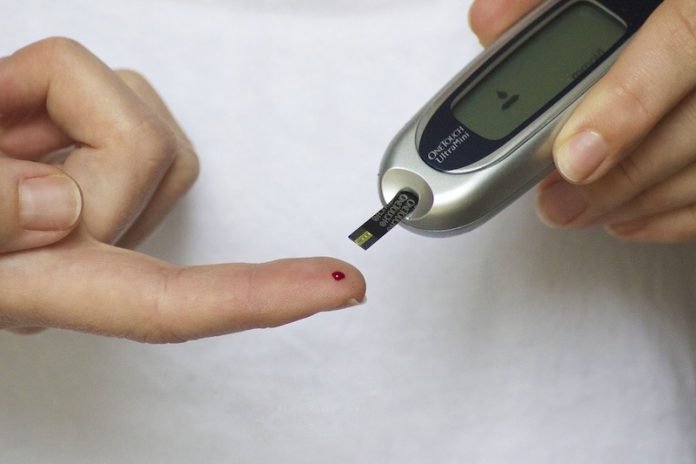
In a new study, researchers found early therapy using vildagliptin and metformin in patients newly diagnosed with type 2 diabetes could lead to better long-term blood sugar control.
It has a reduced rate of treatment failure than metformin alone.
The research was led by a team from the University of Oxford.
Vildagliptin (also known by its trade names of Galvus and Zomelis) is a drug used to treat type 2 diabetes and belongs to the class of drugs known as dipeptidyl peptidase-4 (DPP-4) inhibitors.
By inhibiting this key enzyme, DPP-4 inhibitors promote the secretion of insulin by the pancreas, and inhibit the production of glucagon, and thus help control blood sugar and avoid hyperglycemia.
Metformin has been the first-line treatment for T2D for several decades (the exact time varying by country), and belongs to the biguanide class of diabetes drugs.
Currently, the first-line treatment recommended for type 2 diabetes is metformin monotherapy, with combination therapy only introduced later following treatment failure.
In the study, the team examined 2001 patients from 254 centers in 34 countries.
Among them, 998 received early combination therapy using vildagliptin and metformin, and 1003 received initial metformin alone, across a 5-year treatment period.
The team found the risk of losing blood sugar control (going above HbA1c 53 mmol/mol (7.0%) or more, twice) was about halved in the early combination treatment group compared with the monotherapy group over the 5-year study duration.
During period 2 when patients in both groups were (or could be) receiving combination treatment, the relative risk of losing blood sugar control was also reduced by 26% among those receiving the early combination treatment.
This showed that the early combination therapy strategy approach was superior to a sequential strategy approach involving a later intensification of the failing mono-therapy with combination therapy.
The authors believe the better long term ‘durability’ of blood sugar control seen in the combination group could be due to the complementary mechanism of action between the two drugs.
The lead author of the study is Professor David Matthews from the University of Oxford.
The study is published in The Lancet.
Copyright © 2019 Knowridge Science Report. All rights reserved.



